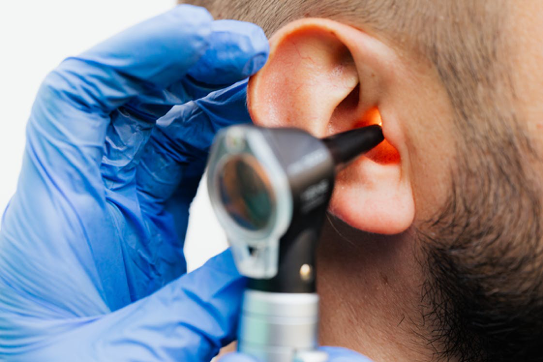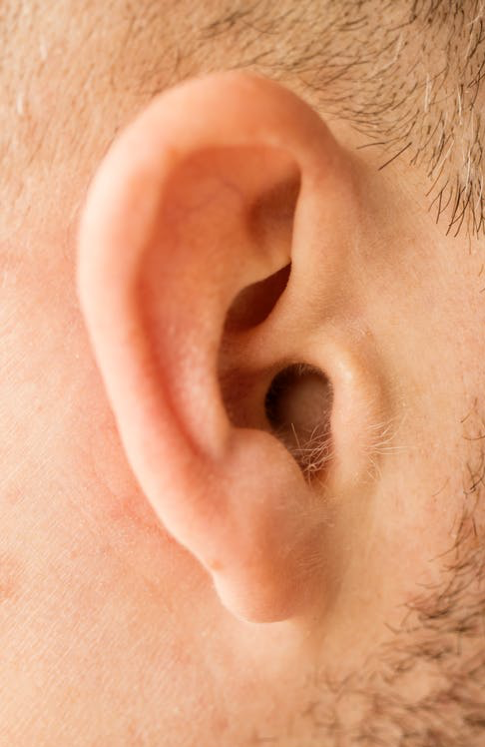What exactly are ear specialists? An ENT specialist, also known as an otolaryngologist, is well known for treating diseases or illnesses of the ears, nose, and throat. They also give consultations related to the head and neck. The ear, nose, and throat are all related to each other, which is why ENT doctors often treat these parts as a similar group.

Source
Common ENT Issues
Common ENT illnesses that an otolaryngologist treats are:
- Vertigo
- Sinuses
- Hearing problems
- Blocked ears
- Swimmer’s ears
- Eustachian tube dysfunction
- Ear infections
- Tinnitus
- myringoplasty
- Nasal congestion
- Polyps
- Vocal cord issues
- Inflammation in throat
- Tonsils
- Allergies
- Deviated Septum
- Sinus infection
These are the medical illnesses that an otolaryngologist consults on and gives treatment comprehensively.
When we specifically talk about ear related diseases, an otolaryngologist collaborates with audiologists and sometimes with specialists in hearing instruments to treat hearing disorders such as hearing loss, tinnitus, and noise induced hearing loss.
The otolaryngologist often does sub specialization to treat ear, nose, and throat disorders more efficiently. They also offer surgeries if the case is severe and there is no option other than surgery.
The functions that the Ear Performs
The human ear performs functions such as hearing, balancing the body with the fluid in its internal structure, and coordinating the head and eye movement. A human ear is divided into three parts: outer, middle, and inner ear, which perform different functions and encounter different illnesses.
The Ear Conditions that ENT Doctors Treat
Our ears are not just for hearing purposes but also help maintain body functions and balance. The hearing conditions that an otolaryngologist treats are:
- Meniere’s disease
- Tumors in ears
- Eustachian tube dysfunction
- Temporal bone fractures
- Vertigo
- Conditions related to Ear Fluid
- Ruptured eardrum
- Otosclerosis
How do ENT’s Diagnose Ear Related Diseases?
An otolaryngologist usually diagnoses ear diseases by performing various tests and physical and medical exams. He looks into the ears, throat, and nose to diagnose an ear infection. They usually use an instrument called an otoscope, which is a lighted instrument.
Some of the tests that an ENT specialist performs are:
- Tympanometry: This device measures the eardrum movement. It assists in adjusting the air pressure in the ear canal to let the eardrum moves freely. It measures the pressure inside the middle ear.
- Tympanocentesis: ENT doctors use this treatment to pierce the eardrum with a tiny tube to drain the fluid in the middle ear. Tympanocentesis occurs when an infection is not treated well by the previous treatments.
- Acoustic reflectometry: measures the sound that reflects from the ear drum. The eardrum is the part that absorbs sound waves the most. The pressure exerted by the middle ear decides how much sound an ear drum reflects.
- Other tests: Today, multiple treatments are available to treat hearing problems, communication disabilities, speech skills, and more. The ENT specialist sometimes refers you to an Audiologist who is a hearing specialist. He treats ear related diseases by using different instruments.

Source
Ear Specialists: Consult now to Treat Ear Related Conditions
You should consult an ENT specialist if you have any disorder related to your ears. The ears are interrelated to your nose and throat. A detailed consultation is the best way to determine the problem and most appropriate course of treatment.
If you’re having persistent problems with your ears, consult Dr. Michael C. Burnett at Ear, Nose & Throat of New York. An ENT expert for over 15 years, Dr. Burnett will diagnose your condition and suggest the best treatment.
Book your appointment or consultation today.
Dr. Michael Burnett
115 East 57th Street
Suite 600
New York, NY 10022
212-867-4813







